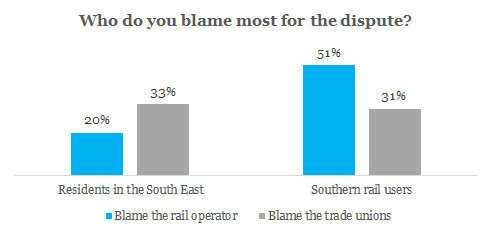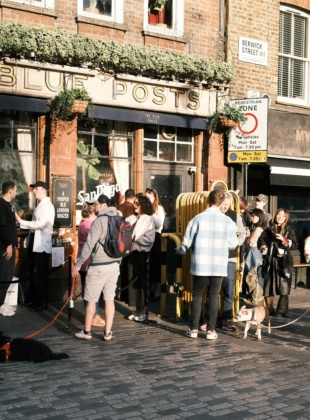Southern rail strikes: who is to blame?
Residents and rail users apportion blame to different sides of the†Southern rail dispute.
Two in five (39%) UK adults believe that public transport workers should not have the right to strike, although 47% believe they should retain their right to withdraw their labour. Despite the recent industrial action on Southern rail, this has remain unchanged since early August 2015 (37% believe they should not be allowed to strike vs 48% should be allowed to strike).
However, half (50%) of residents in the South East of England think transport workers should be banned from striking, up from early August last year (42%).
A small sample of regular Southern rail and Thameslink users agreed, with 48% believing public transport workers shouldn?t be allowed to go out on strike.
Strikes opposed by local residents and rail users
Three in five (58%) of those in South East England oppose the strikes announced by the trade unions across December and January, while only 18% support it. Similarly, 53% of Southern rail users oppose the recent strike.
However, who is to blame is harder to pin down. Residents in the South East narrowly blame the trade unions more than Govia, the rail operator responsible for Southern (33% vs 20% respectively).

However, despite being almost as strongly opposed to the strikes, half (51%) of Southern rail users blame Govia while only 31% blame the unions.
The politics of the strikes
Fitting in with expectations, Conservatives across the UK attribute most blame to the unions instead of Govia (49% vs 11% respectively). On the other hand, Labour finds most fault with the rail operator instead of ASLEF and the RMT (42% vs 7% respectively). †




